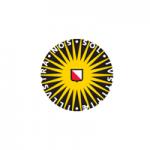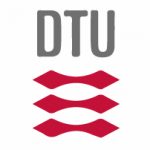项目介绍
Cells are crowded with biomolecules, which could affect protein behavior through macromolecular crowding. Crowding depends on stress and cell type and, therefore, its consequences will vary. This makes it pertinent to determine intracellular crowding in different (disease) states and identify its potentially toxic consequences.
Your job
As PhD candidate in this project, you will aim to develop better tools to measure crowding and its consequences. We are experts in sensor development, providing you with an ideal springboard and environment. Your sensors will be used in collaborations, thus finding immediate application. To understand the observations in living cells, you will make artificial cells using microfluidics. Here, you can build on our previous work on making artificial cells with high crowding, but you can also use your own creativity. You will do a detailed analysis of your probes in artificial cells with fluorescence microscopy techniques such as FRET-FLIM to better understand how crowding and its consequences correlate.
Your qualities
This PhD position may be the right fit for you, if you recognize yourself in several or all of the following:
- You have a Master’s degree in biochemistry, protein engineering, biophysics, biomedical engineering, or related sciences.
- You are open to learning new skills and techniques, such as advanced fluorescence microscopy, biophysical measurements, and microfluidics.
- You are creative, pragmatic, and comfortable with different research disciplines.
- You have a collaborative nature and ability to work in a team on a project.
Our offer
We offer:
- a position for one year, with an extension to a total of four years upon a successful assessment, and with the specific intent that it results in a doctorate within this total period
- a working week of 36 to 40 hours and a gross monthly salary between €2,872 and €3,670 in the case of full-time employment (salary scale P under the Collective Labour Agreement for Dutch Universities (CAO NU));
- 8% holiday pay and 8.3% year-end bonus;
- a pension scheme, partially paid parental leave and flexible terms of employment based on the CAO NU.
In addition to the terms of employment external link laid down in the CAO NU, Utrecht University has a number of schemes and facilities of its own for employees. This includes schemes facilitating professional development external link, leave schemes and schemes for sports and cultural activities external link, as well as discounts on software and other IT products. We also offer access to additional employee benefits through our Terms of Employment Options Model. In this way, we encourage our employees to continue to invest in their growth. For more information, please visit Working at Utrecht University external link.
About us
A better future for everyone. This ambition motivates our scientists in executing their leading research and inspiring teaching. At Utrecht University external link, the various disciplines collaborate intensively towards major strategic themes external link. Our focus is on Dynamics of Youth, Institutions for Open Societies, Life Sciences and Pathways to Sustainability. Sharing science, shaping tomorrow external link.
Working at the Faculty of Science means bringing together inspiring people across disciplines and with a variety of perspectives and backgrounds. The Faculty has six departments: Biology, Pharmaceutical Sciences, Information & Computing Sciences, Physics, Chemistry and Mathematics. Together, we work on excellent research and inspiring education. We do so, driven by curiosity and supported by outstanding infrastructure. Visit us on LinkedIn and discover how you can become part of our community.
This research will be executed in the Boersma group external link at the Bijvoet Centre for Biomolecular Research external link at Utrecht University. The Boersma lab hosts the required facilities for biochemistry and microfluidics. There is full access to state-of-the-art microscopy facilities at the Utrecht Biology Imaging Center. Lab facilities, knowledge, offices, and social life are shared daily with the cellular protein chemistry section that studies protein misfolding and protein homeostasis. The Boersma group aims to understand the role of intracellular density by using sensors in artificial and living cells. The lab has been very successful in FRET sensor development for macromolecular crowding (Nature Methods 2015), ionic strength (ACS Chem Biol 2017), and protein self-assembly (Cell Rep Met 2022) and its applications in cells (eLife 2020) and artificial cells (Adv Sci 2022).
More information
For more information, please contact Dr. Arnold J. Boersma external link at a.j.boersma@uu.nl.
Do you have a question about the application procedure? Please send an email to science.recruitment@uu.nl.
Apply now
At Utrecht University, we want to be a home external link for everyone. We value staff with diverse backgrounds, perspectives, and identities, including cultural, religious, or ethnic backgrounds, gender, sexual orientation, disability, or age. We strive to create a safe and inclusive environment where everyone can flourish and contribute.
If you are enthusiastic about this position, just apply via the “Apply now” button! Please enclose:
- your letter of motivation;
- your curriculum vitae;
- the names, telephone numbers, and email addresses of at least two references;
- a transcript of your grades.
If this specific opportunity isn’t for you, but you know someone else who may be interested, please forward this vacancy to them.
The application deadline is 9 October 2024.
联系方式
电话: +31 (0)30 253 35 50相关项目推荐
KD博士实时收录全球顶尖院校的博士项目,总有一个项目等着你!




